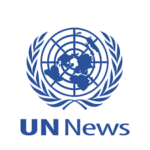‘Economy Is Society’s Servant, Not Its Master,’ Say UN Rights Experts, Urging Brazil to Put Human Rights before Austerity
BRICS, LATIN AMERICA AND THE CARIBBEAN, UNITED NATIONS, 6 Aug 2018
UN News – TRANSCEND Media Service
Marginalized groups suffer unduly harsh consequences due to Brazil’s economic policies of austerity, prompting United Nations rights experts to urge the Government to instead prioritize human rights.
3 Aug 2018 – “People living in poverty, and other marginalized groups, are disproportionately suffering as a result of the stringent economic measures in a country once considered as an example of progressive policies to reduce poverty and promote social inclusion,” said a statement released by a group of seven UN human rights experts on Friday.
According to the experts, data recently made available, reveals a rise in child mortality rates for the first time in 26 years, attributable in part to the Zika disease virus epidemic and economic crisis of recent years.
This is a serious concern, especially considering public health system budgetary restrictions and other social policies that compromise the State’s commitment to guarantee human rights for all, especially children and women, the experts elaborated.
“Some of the financial and fiscal decisions made in the last years affect the enjoyment of several rights, including to housing, food, water, sanitation, education, social security and health, and are worsening pre-existing inequalities,” they added.
While the Government has underlined various measures to alleviate the adverse consequences, the experts find them largely insufficient.
“Women and children living in poverty are among those hit hardest, as are Brazilians of African descent, rural populations, and people living in informal settlements,” said the experts. “We regret that efforts in relation to targeted policies addressing systemic discrimination against women have not been sustained.”
“Austerity measures should be taken only with the most careful analysis of their impact.”
– UN Human Rights Experts
They stressed that austerity measures, which have been popular across the world since the 2008 economic crisis, should never be the only – or first – solution to tackling economic problems.
They explained that economic crises do not justify cuts to services and social rights.
“Austerity measures should be taken only with the most careful analysis of their impact, in particular as they would affect the most disenfranchised individuals and groups,” they stressed. “They must be considered only after a comprehensive human rights impact assessment.”
The experts added that such an assessment should consider less harmful policy alternatives, like raising taxes for the richest before placing bigger burdens on the poor: “Steps to reduce public debt and to regain not only financial but also social sustainability, should also be considered,” the experts stressed.
Once a champion in the fight against hunger and malnutrition, Brazil, is dramatically reversing major policies on food security; cutting housing; and, according to 2018 forecasts, reducing water and sanitation. Moreover, public spending is expected to remain capped for 20 years, further underscoring the need to review economic policies with a human rights lens.
DISCLAIMER: The statements, views and opinions expressed in pieces republished here are solely those of the authors and do not necessarily represent those of TMS. In accordance with title 17 U.S.C. section 107, this material is distributed without profit to those who have expressed a prior interest in receiving the included information for research and educational purposes. TMS has no affiliation whatsoever with the originator of this article nor is TMS endorsed or sponsored by the originator. “GO TO ORIGINAL” links are provided as a convenience to our readers and allow for verification of authenticity. However, as originating pages are often updated by their originating host sites, the versions posted may not match the versions our readers view when clicking the “GO TO ORIGINAL” links. This site contains copyrighted material the use of which has not always been specifically authorized by the copyright owner. We are making such material available in our efforts to advance understanding of environmental, political, human rights, economic, democracy, scientific, and social justice issues, etc. We believe this constitutes a ‘fair use’ of any such copyrighted material as provided for in section 107 of the US Copyright Law. In accordance with Title 17 U.S.C. Section 107, the material on this site is distributed without profit to those who have expressed a prior interest in receiving the included information for research and educational purposes. For more information go to: http://www.law.cornell.edu/uscode/17/107.shtml. If you wish to use copyrighted material from this site for purposes of your own that go beyond ‘fair use’, you must obtain permission from the copyright owner.
Read more
Click here to go to the current weekly digest or pick another article:
BRICS:
- The “BRICS Sovereigns” vs the “Globalist Oligarchy”
- Cuba Joining BRICS Is a Lifeboat for Its Economy
- BRICS and G20 Value Platforms: A Comparative Analysis
LATIN AMERICA AND THE CARIBBEAN:
- ‘Haiti’s Survival Is at Stake,’ Says UN Expert, Warning of Worsening Crisis
- Women's Interdepartmental Coalition of Haiti
- Biden or Trump, US Latin American Policy Remains Contemptible: Migration, Drugs, Tariffs
UNITED NATIONS:
